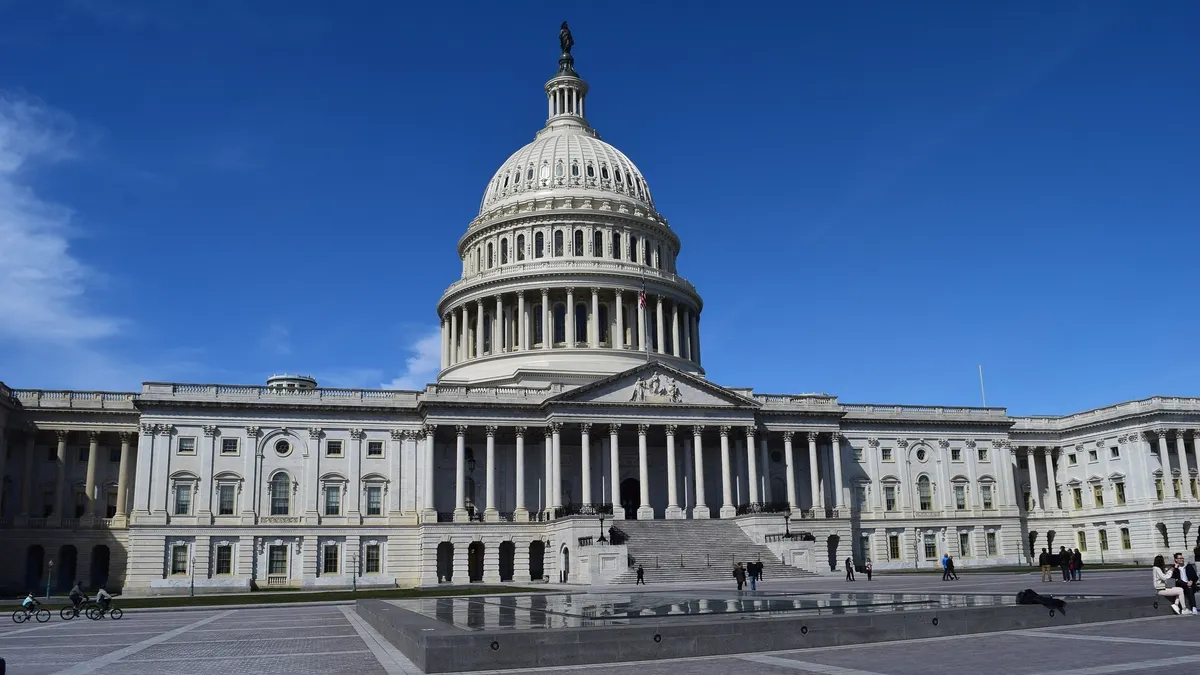UPDATE: April 27, 2020: The U.S.-Mexico-Canada Agreement will enter into force on July 1, 2020, according to a press release from the U.S. Trade Representative. The U.S. is the third and final party to the USMCA to complete the domestic preparations required for implementation.
"The crisis and recovery from the Covid-19 pandemic demonstrates that now, more than ever, the United States should strive to increase manufacturing capacity and investment in North America," U.S. Trade Representative Robert Lighthizer said in a statement.
UPDATE: March 13, 2020: The Canadian parliament ratified the U.S.-Mexico-Canada Agreement on Friday, the third and final country in the trade deal to do so, according to a statement from the U.S. Trade Representative.
Canadian lawmakers made the decision to "rush through ratification" before the parliament adjourns due to the COVID-19 outbreak until at least April 20, according to an Agence France-Presse report.
UPDATE: Jan. 29, 2020: President Trump signed the U.S.-Mexico-Canada Agreement (USMCA) into law Wednesday. Mexico has already ratified the deal and the Canadian government is expected to follow suit in the coming weeks.
Retail industry representatives celebrated the agreement's signing, expressing optimism about continued free trade between the three countries.
"This deal is particularly important to grocers who rely heavily on trade with Mexico to supply affordable produce to American families, and its enactment will ensure those trade relationships continue," Retail Industry Leaders Association (RILA) President Brian Dodge said in a statement.
"We hope to see the Canadian Parliament ratify the USMCA as soon as possible so the benefits of free trade in North America can continue uninterrupted," NRF President and CEO Matthew Shay said in a statement.
Dive Brief:
- The U.S.-Mexico-Canada Agreement passed the Senate 89-10 Thursday, with the majority of lawmakers applauding improved labor, environmental and pharmaceutical enforcement provisions approved by the U.S. House of Representatives in December.
- Mexico has already ratified the treaty and Canada is expected to do so once its parliamentary session resumes in late January.
- "There is good reason for the broad support," Sen. John Barrasso, R-Wyo., said in a speech this week, "USMCA ... is going to expand market access for a host of U.S. products, and it will sharpen U.S. exporters' competitive edge."
Dive Insight:
The trade deal expands U.S. access to duty-free agricultural, manufacturing and technology markets in Canada and Mexico while creating more robust enforcement mechanisms to protect labor rights, the environment, pharmaceutical consumers and, in a key upgrade from the North American Free Trade Agreement (NAFTA), digital trade.
The digital trade provisions in the USMCA prohibit "customs duties and other discriminatory measures from being applied to digital products distributed electronically" such as e-books and software, according to a U.S. Trade Representative factsheet. They also include cybersecurity and free data transmission and storage rules to protect the flow of commercial data. Part of this section ensures "suppliers are not restricted in their use of electronic authentication or electronic signatures," which could enable more seamless digital transactions throughout the supply chain.
In another win for shippers, the USMCA raises de minimis and duty-free thresholds in Canada and Mexico. The de minimis thresholds determine the value at which parcels can ship across borders tax- and duty-free and with simplified customs forms.
Canada will raise its de minimis level from 20 Canadian dollars ($15.29) to 40 Canadian dollars ($30.59), and provide duty-free shipments for items valued up to 150 Canadian dollars ($194.66).
Likewise, Mexico's de minimis level will remain at $50 and its duty-free limit will be $117.
The changes reduce the cost shippers can incur for small- to medium-sized cross-border shipments, which have begun to include a growing number of e-commerce orders in recent years.
"The [USMCA] will be great for America and our allies by improving customs regulations, spurring the growth of e-commerce and supporting the participation of more small businesses in regional and global supply chains," Laura Lane, president of UPS Global Public Affairs, said in a statement.
The National Retail Federation also applauded the Senate's passage of the trade deal. "This updated agreement will modernize trade among our closest trading partners and pave the way for continued prosperity across the borders of North America," NRF President and CEO Matthew Shay said in a statement.
In addition to labor, environmental and consumer protections, lawmakers expressed relief at not seeing a tariff-forward trade policy from the administration. The USMCA preserves the free trade provisions in NAFTA.
"I believe the president’s stated goal of ‘zero tariffs, zero non-tariff barriers, and zero subsidies’ is exactly the right goal for Tennessee’s auto industry, manufacturers and farmers, and a welcome movement away from piling tariffs on top of tariffs that threaten to destroy jobs and lower family incomes," Sen. Lamar Alexander, R-Tenn., said in a statement. "Tariffs are taxes, plain and simple — and USMCA is fundamentally a zero tariff trade agreement."
While free trade with Mexico and Canada is crucial to the U.S. economy, external assessments of the USMCA's impact have produced middling results. A study from the International Trade Commission (ITC) conducted last year found the USMCA would increase U.S. real GDP by $68.2 billion (0.35%) and add 176,000 jobs to the U.S. economy (a 0.12% increase).
The International Monetary Fund called the impact "negligible," saying the key benefits of the new deal come from removing existing tariffs that the administration put in place to pressure new trade negotiations.














